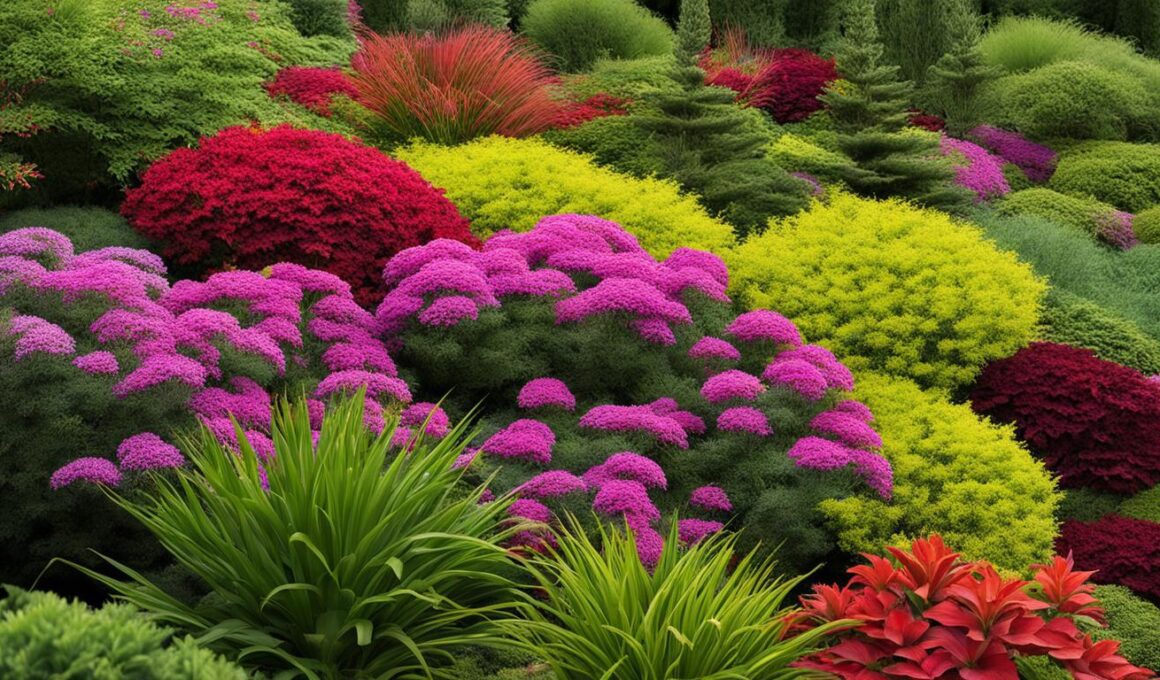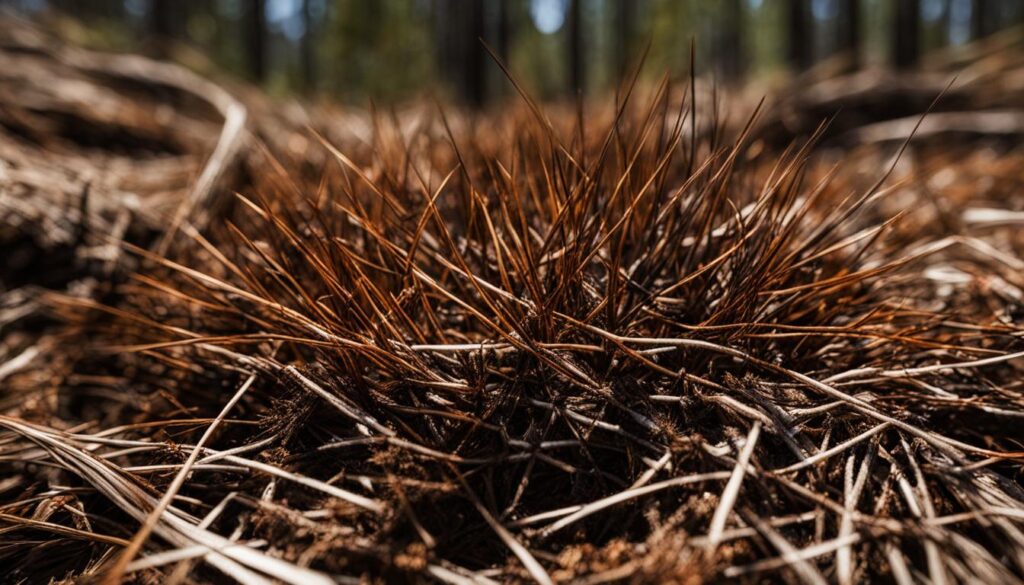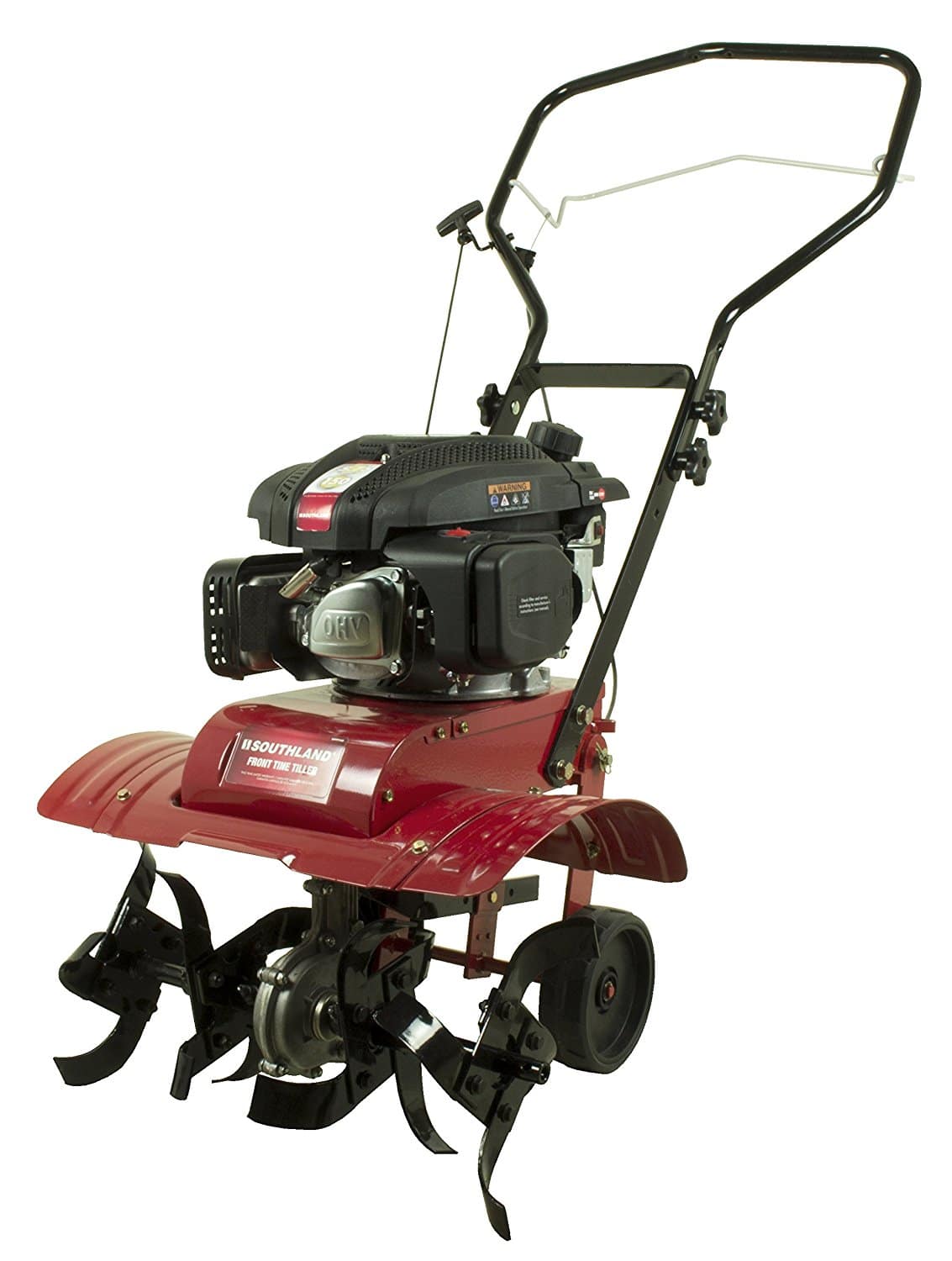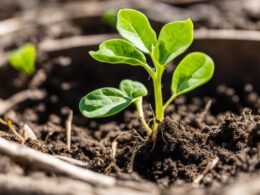Welcome to the world of gardening, where understanding the specific needs of your plants is key to creating a thriving and beautiful landscape. Mulching is a popular practice among gardeners, providing a range of benefits such as weed suppression and moisture retention. One commonly used mulch material is pine needles, appreciated for its natural appearance and easy availability. However, it’s essential to know that not all plants appreciate pine needles as mulch, especially those that prefer neutral or alkaline soil conditions.
When pine needles break down, they release organic compounds that can lower the pH level of the soil, making it more acidic. This acidic soil environment can be advantageous for certain plants, known as acid-loving plants. These plants have adapted to thrive in slightly acidic or strongly acidic soil. Examples of acid-loving plants include azaleas, rhododendrons, blueberries, and hydrangeas. The acidity provided by pine needle mulch can enhance their growth and overall health.
On the other hand, plants that prefer neutral to slightly alkaline soil may struggle when mulched with pine needles. Such plants, including tomatoes, cucumbers, asparagus, basil, parsley, marigolds, and geraniums, thrive in soil with a balanced pH. The acidic conditions created by pine needle mulch can hinder their nutrient uptake and overall development. To cater to the specific preferences of these plants, it is advisable to consider alternative mulch materials.
Alternative mulch options that provide neutral or slightly alkaline soil conditions include wood chips, bark mulch, straw, hay, compost, and shredded leaves. These materials can maintain a more favorable pH level for plants that thrive in such environments. By choosing the right mulch for your plants, you can create a harmonious and suitable growing environment, resulting in healthy and vibrant foliage.
For further insights on which plants should avoid pine needles as mulch, continue reading the next section.
Which Plants Should Avoid Pine Needles as Mulch?
While pine needle mulch is beneficial for acid-loving plants, there are several plants that do not thrive in the presence of pine needles. These plants include:
- Asters: Asters require well-draining soil and do not appreciate the water-retaining properties of pine needles.
- Lavender: Lavender prefers well-draining soil and may suffer from the excess moisture caused by pine needles.
- Roses: Roses prefer slightly acidic soil and can be negatively impacted by the increased acidity caused by pine needles.
- Sunflowers: Sunflowers do not like pine needles as mulch and may experience issues such as root rot, fungal diseases, and hindered growth.
- Boxwood: Boxwood is another plant that should avoid pine needle mulch due to its preference for neutral soil conditions.
- Dianthus: Dianthus also prefers neutral soil and may not thrive when mulched with pine needles.
- Green Artichoke: Green artichoke plants can be negatively affected by the acidity of pine needle mulch and may suffer from stunted growth.
For these plants, gardeners should opt for alternative mulch options to ensure their well-being and promote optimal growth. Consider using materials such as wood chips, bark mulch, straw, hay, compost, or shredded leaves as mulch alternatives.
Conclusion
Informed mulching decisions are crucial for maintaining a healthy and vibrant garden. When it comes to using pine needle mulch, it’s important to consider the specific preferences of your plants. While pine needle mulch can provide numerous benefits for acid-loving plants, such as azaleas, rhododendrons, blueberries, and hydrangeas, it can create challenges for plants that prefer neutral or alkaline soil.
For plants like tomatoes, cucumbers, asparagus, basil, parsley, marigolds, and geraniums, it’s best to avoid using pine needle mulch. These plants thrive in neutral to slightly alkaline soil conditions and may struggle when exposed to the increased acidity caused by pine needles. Instead, consider using alternative mulch materials like wood chips, bark mulch, straw, hay, compost, or shredded leaves to cater to the specific preferences of these plants.
By selecting the right mulch material for your garden, you can create a harmonious balance that nurtures all plants. Whether you choose pine needle mulch for acid-loving plants or opt for alternative options, such as wood chips or straw, understanding the needs of your plants is essential for a successful and thriving garden. So, take into consideration the soil requirements of your plant varieties and make informed mulching decisions to ensure your garden flourishes.
– Do Pine Needles Affect Plant Growth and Health in the Same Way Charcoal Does?
Yes, pine needles can affect plant growth and health in a similar way to charcoal for plant growth. Both can improve soil structure, retain moisture, and release nutrients. However, it’s important to use pine needles and charcoal in moderation to avoid any negative effects on plant growth.










